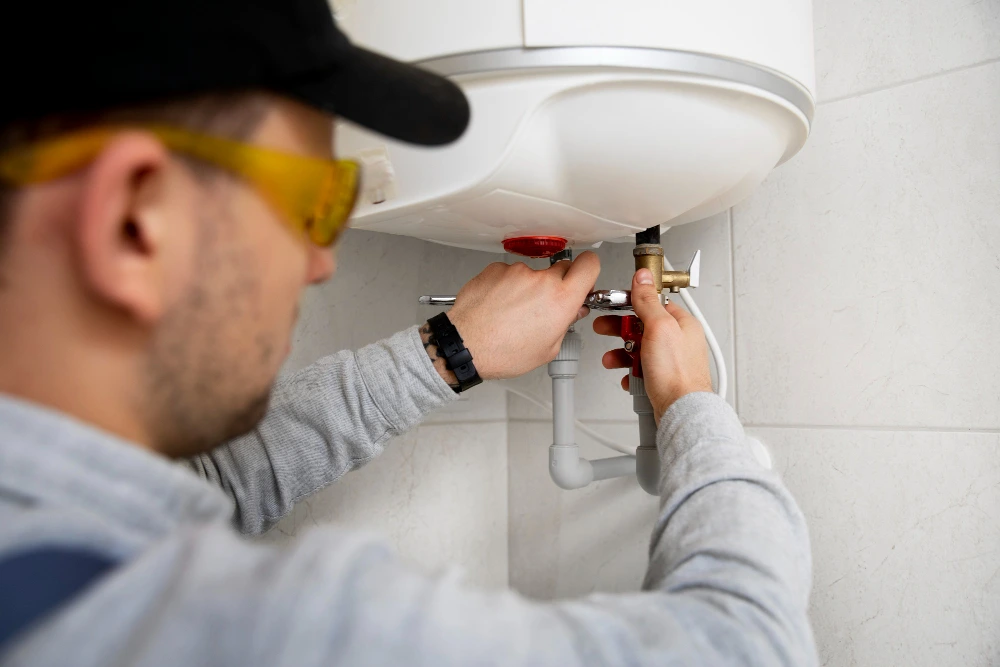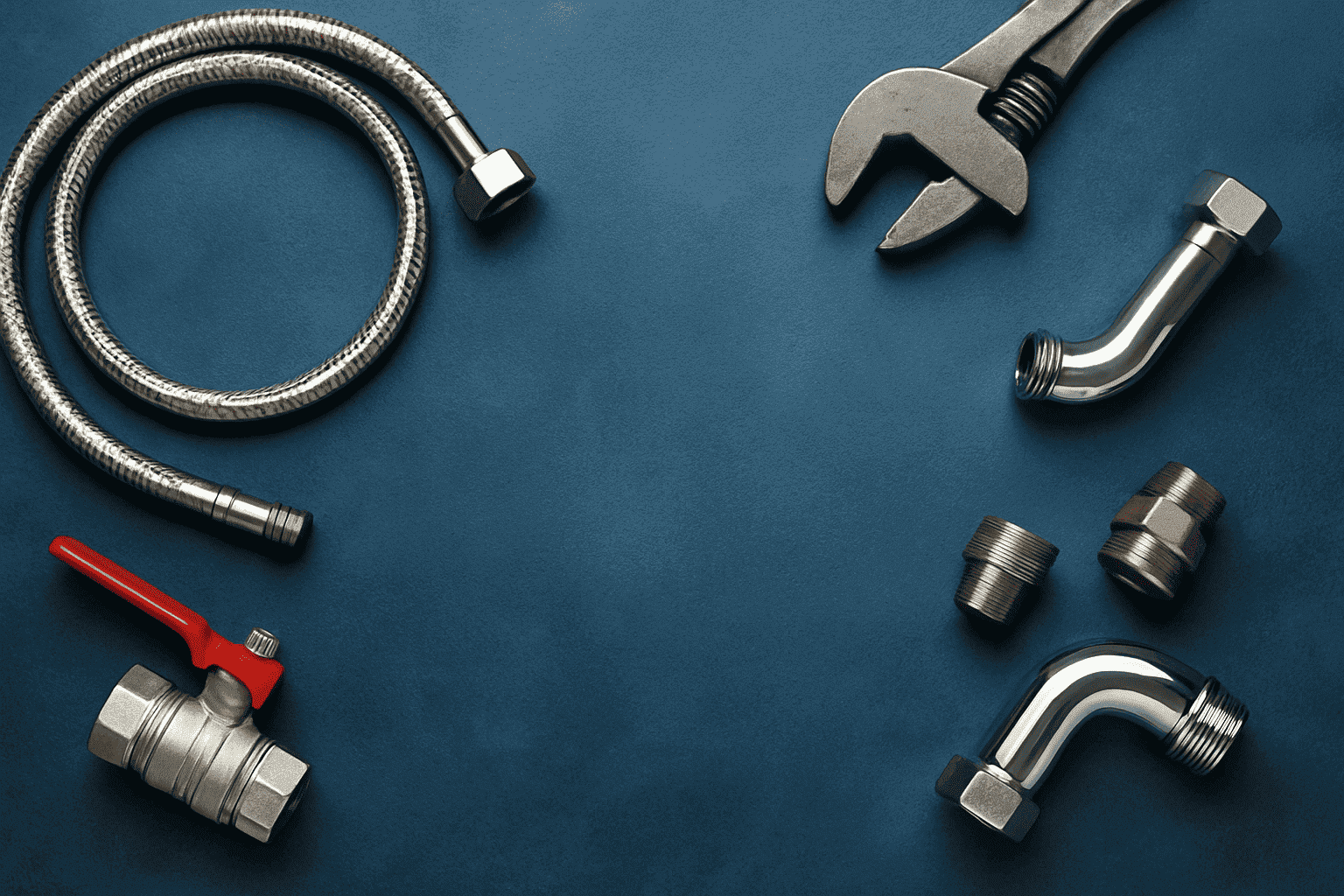
5 Signs Your Water Heater Needs Immediate Attention
Most homeowners don't think about their water heater until they're forced to take a cold shower. However, paying attention to early warning signs can save you from the inconvenience of a sudden breakdown, prevent water damage to your home, and potentially extend the life of your unit. In Miami, where hard water can accelerate wear and tear on plumbing components, being vigilant about these warning signs is especially important.
Table of Contents
Unusual Noises Coming From Your Water Heater
One of the earliest indicators that your water heater needs attention is strange sounds emanating from the unit. If you hear rumbling, popping, or banging noises, this typically indicates sediment buildup at the bottom of the tank. As water gets trapped under this layer of sediment and heats up, it creates these distinctive sounds.
This sediment accumulation is particularly common in Southwest Florida due to our hard water. Over time, these minerals settle at the bottom of your tank, forcing your water heater to work harder to heat water. This not only drives up your energy bills but can cause premature failure of the heating elements or tank.
The fix: Schedule a professional flush and maintenance service. A thorough cleaning will remove the sediment layer, restore efficiency, and extend the life of your water heater. For severe cases, a water softener might be recommended to reduce future mineral buildup.
Rusty or Discolored Water
If your hot water appears rusty, reddish-brown, or has an unusual metallic smell, your water heater is likely corroding from the inside. This corrosion can affect water quality and is often a precursor to leaks or tank failure.
When you notice discolored water only from hot water taps, the problem is almost certainly in your water heater. The internal anode rod, designed to attract corrosive elements and protect the tank, may have deteriorated completely, allowing corrosion to attack the tank itself.
The fix: Have a plumber inspect the unit immediately. They can determine if replacing the anode rod will solve the issue or if the corrosion has progressed to a point where tank replacement is necessary. Acting quickly when you first notice discolored water can sometimes save the unit.
Decreasing Hot Water Supply
Are your showers getting shorter because the hot water doesn't last as long as it used to? A noticeable decrease in available hot water is a clear sign something isn't right with your water heater.
This problem commonly occurs due to:
- Sediment buildup reducing tank capacity
- A failing heating element not efficiently heating the water
- A thermostat malfunction
- A tank that's too small for increased household demands
The fix: First, check if your hot water usage has changed (new family members, new appliances). If not, have a professional diagnose the specific issue. Sometimes a simple component replacement can restore performance, while in other cases, upgrading to a properly sized unit may be the most cost-effective long-term solution.
Water Around the Base of the Heater
Finding moisture or small pools of water around your water heater is never a good sign. Even minor leaks deserve immediate attention, as they rarely resolve themselves and often indicate a serious problem.
Leaks can originate from several sources:
- Loose connections or valve issues (potentially repairable)
- Fractures in the tank due to corrosion or pressure changes (requires replacement)
- Excessive pressure causing overflow from the temperature-pressure relief valve (safety concern)
The fix: Turn off the power to electric water heaters or set gas water heaters to "pilot." Then shut off the cold water supply. Call a plumber immediately, as leaks can quickly escalate to major water damage in your home. Never ignore even seemingly minor water heater leaks.
Age-Related Decline
The final warning sign isn't something you'll observe directly—it's the age of your unit. Most standard residential water heaters have a lifespan of 8-12 years, with tankless units lasting up to 20 years. If your water heater is approaching or has exceeded this age range, it's time to be extra vigilant and consider proactive replacement.
Older units not only operate less efficiently (costing you more in energy bills) but are also at much higher risk for catastrophic failure that could result in significant water damage to your home. In Miami' humid climate, such water damage can quickly lead to mold issues, compounding the problem.
The fix: If your water heater is showing age-related performance issues and is near the end of its expected lifespan, start researching replacement options. Modern units are significantly more energy-efficient and can reduce your monthly utility costs while providing more reliable hot water.
Professional Plumber Tip
Water heater maintenance isn't just about preventing problems—it's also about saving money. A properly maintained water heater uses 10-15% less energy than a neglected one. For most Miami homeowners, that translates to $50-100 in annual savings. Plus, extending your water heater's life by just 2-3 years through regular maintenance can save you $800-1,200 in replacement costs. The small investment in annual maintenance pays for itself many times over!
Conclusion
Your water heater works hard every day to provide hot water for bathing, cleaning, and cooking. By paying attention to these five warning signs—unusual noises, discolored water, decreased hot water supply, leaks, and age-related issues—you can address problems before they result in cold showers or water damage to your home.
Regular maintenance, such as annual flushes and anode rod inspections, can significantly extend your water heater's lifespan and maintain its efficiency. However, when multiple warning signs appear or your unit approaches the 10-year mark, it's wise to consider replacement options.
Need help with a plumbing problem?
Our professional plumbing team is available 24/7 to address all your plumbing needs in Miami.
Call us: (239) 292-1993
